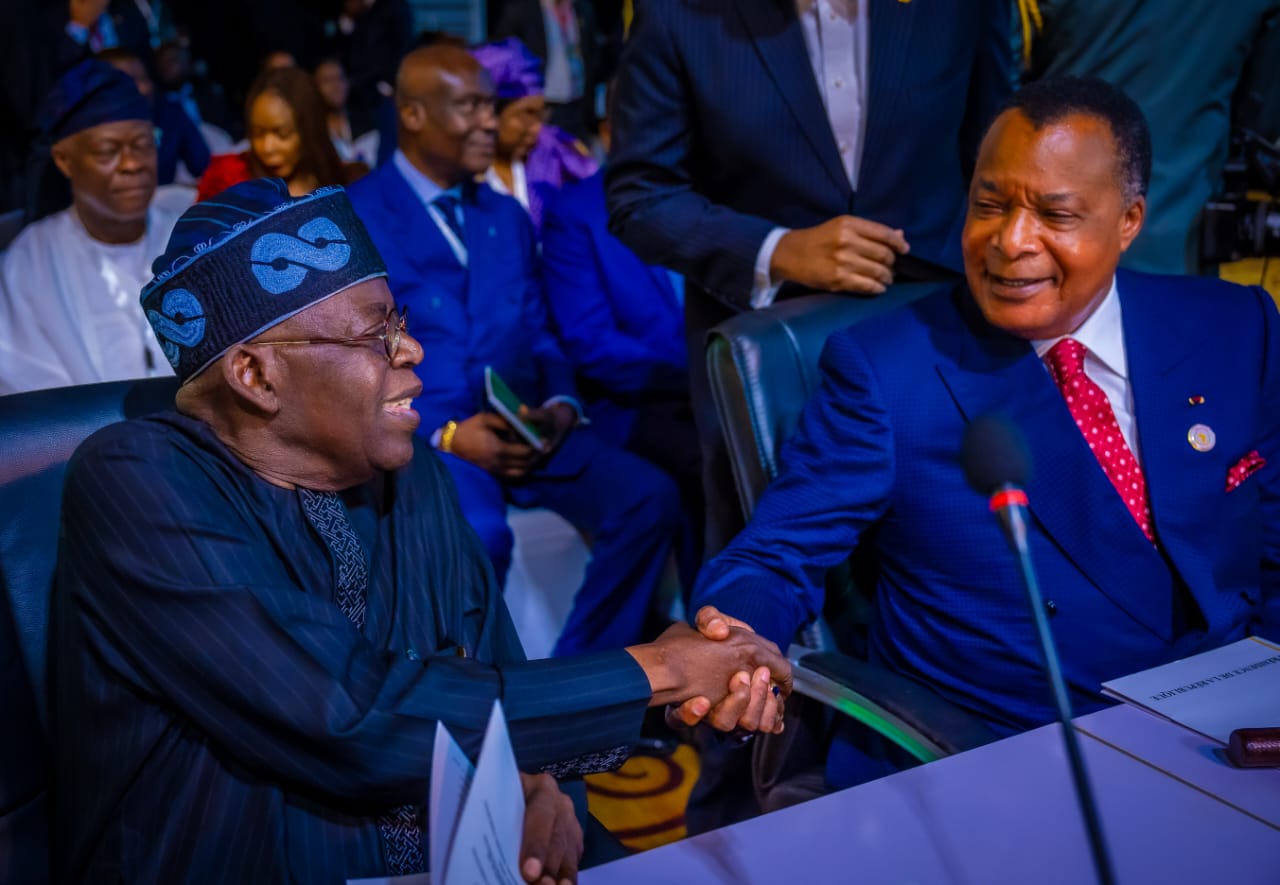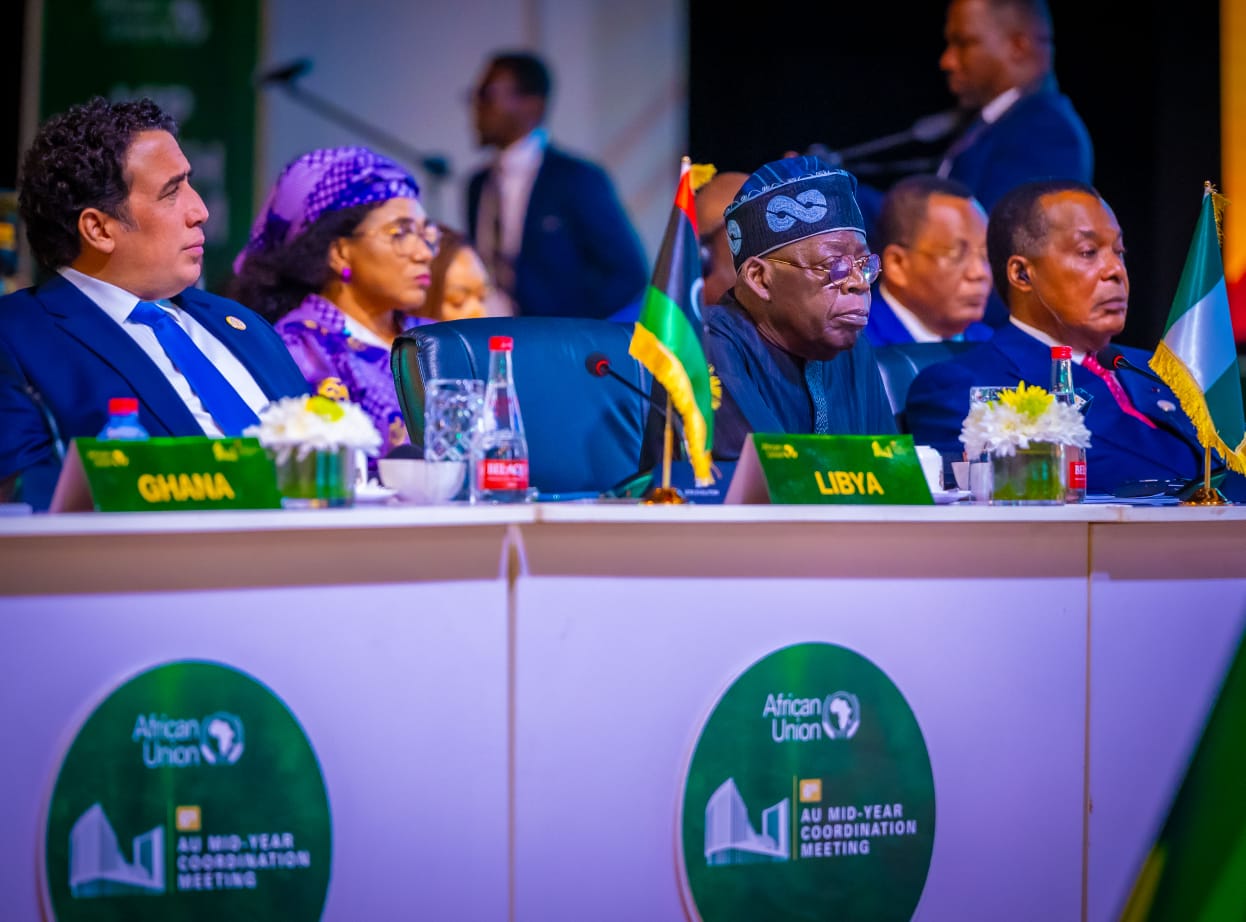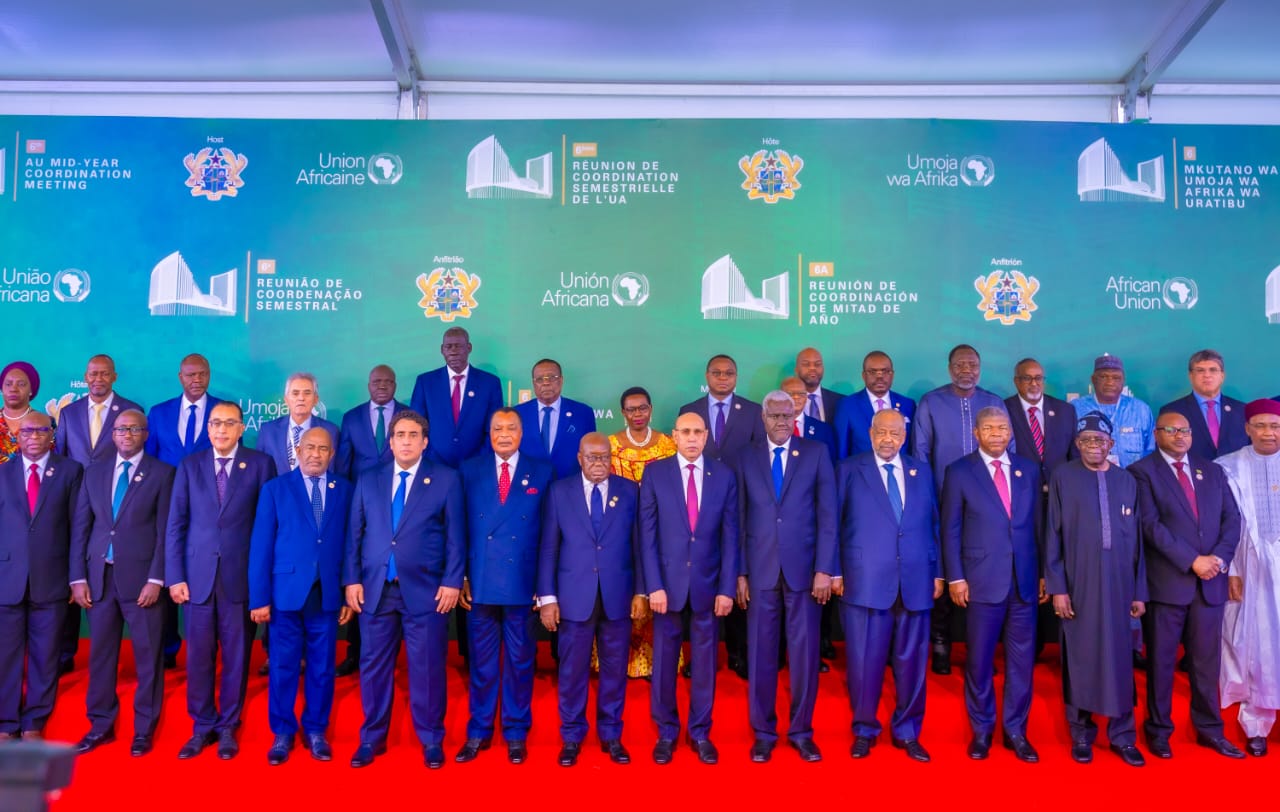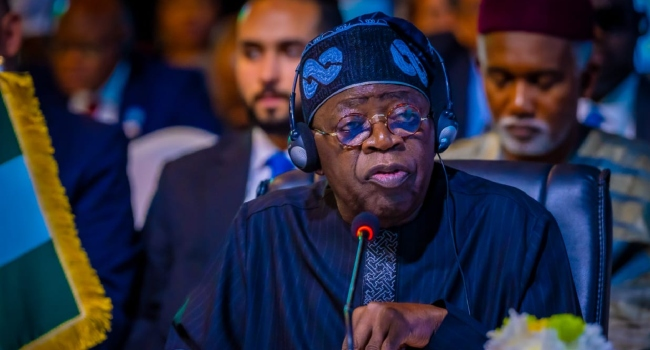President Bola Tinubu on Sunday highlighted the accomplishments of the Economic Community of West African States (ECOWAS) to African leaders during the Sixth Mid-Year Coordination Meeting of the African Union (AU) in Accra, Ghana.
Tinubu, in his capacity as ECOWAS Chairman, outlined significant strides made over the past year. He cited the ratification of the WTO Fisheries Subsidies Agreement by six member states and the AFCFTA agreement by thirteen members. He also mentioned the operational status of the ECOWAS interconnected System for the Management of Goods in Transit (SIGMAT) in twelve member states.

On the humanitarian front, Tinubu revealed that ECOWAS allocated $9 million to aid refugees, internally displaced persons, and asylum seekers. Additionally, $4 million was directed to member states at the forefront of the fight against terrorism under the ECOWAS Counter Terrorism Humanitarian Response.
In the education sector, initiatives like the West African Network of National Academies of Sciences and the African Forum for Research and Innovation were established. The regional Academic Mobility Scheme continues to equip youth with practical skills and harmonize education systems. In health, ECOWAS has provided support to women with obstetric fistula, empowered women entrepreneurs in agribusiness, and promoted gender equality in education and the green economy.


President Tinubu also discussed progress in energy, mines, and agriculture, noting advancements in electrification efforts in The Gambia, Guinea Bissau, and Mali through the ECOWAS-Regional Electricity Access Project (ECOREAP) and the Regional Off Grid Electricity Access Project (ROGEAP). He highlighted financial support and training provided to SMEs in the region, including a total grant of $38 million for sustainable electricity access.
READ ALSO: Tinubu Pledges Timely and Impactful Investments in Key Economic Sectors
On economic integration, Tinubu emphasized ECOWAS’s efforts to consolidate the free trade area, customs union, and common market. The regional body has also supported members in international meetings on environmental issues and the implementation of the Paris Agreement.
Furthermore, the ECOWAS Bank for Investment and Development (EBID) has operationalized the Regional Fund for Agriculture and Food (RFAF), aiming for self-sufficiency in rice production. The bloc has also launched initiatives to improve animal health and support climate-smart agriculture.
Tinubu acknowledged the challenges facing ECOWAS, including geopolitical rivalries, terrorism, food insecurity, climate change, and misinformation. He affirmed the bloc’s commitment to dialogue and unity, particularly with Burkina Faso, Mali, and Niger, and announced a forthcoming Special Extraordinary Summit to address these issues.
In conclusion, President Tinubu underscored ECOWAS’s leadership role in continental integration and collaboration with other AU regional communities. He also held a bilateral meeting with President Ismail Omar Guelleh of Djibouti to discuss mutual development concerns and challenges.
Chief Ajuri Ngelale
Special Adviser to the President
(Media & Publicity)










